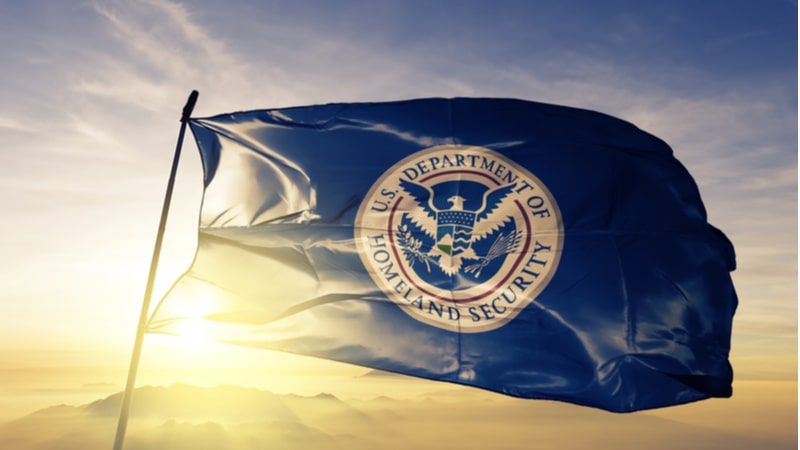
The Senate Judiciary Committee held its annual oversight hearing on the Department of Homeland Security (DHS) today, where conversations about leveraging emerging technologies – like AI – took center stage amidst the growing, bipartisan concern surrounding the nation’s opioid crisis.
“We have a bipartisan concern about fentanyl in the United States,” Chairman Dick Durbin, D-Ill., said at the top of the Senate hearing on March 28.

DHS Secretary Alejandro Mayorkas testified in front of the panel, explaining that his department is “seeking more resources in our fiscal year 2024 budget” to mitigate the entry of fentanyl into the United States from its southern border.
Mayorkas said DHS is planning to use the money “to add personnel, to add non-intrusive inspection technology, to allow our forward operating labs to detect the substance at the point of interdiction.”
“We are investing more in [non-intrusive inspection technology],” Mayorkas said. “In addition, we are exploring how we can use artificial intelligence to really serve as a force multiplier for our incredible border patrol agents.”
The secretary said DHS is seeking “hundreds of millions of dollars” in its fiscal year 2024 budget to beef up technology at the border and lower the amount of fentanyl entering the United States.
According to the National Institutes of Health, there were nearly 107,000 drug-involved overdose deaths reported in the U.S. in 2021, and fentanyl was the primary driver of the deaths – with a nearly 7.5-fold increase from 2015 to 2021.
Just last week, DHS launched a new Operation Blue Lotus that leverages additional personnel and technology to stop fentanyl from coming into the United States through ports of entry at the U.S-Mexico border.
“This is not a partisan issue. This is an American issue. This is an American crisis,” Sen. Cory Booker, D-N.J., said. “We need more resources at our borders and our ports of entry that enable modern, cutting-edge technology to be used to detect the presence of fentanyl.”
“All different types of technology, from motion detectors to aerial surveillance, they would free up considerable amounts of our Customs and Border Patrol to focus more on where exactly the fentanyl is coming from,” he said.
Mayorkas agreed with Sen. Booker, explaining that DHS is leveraging different emerging technologies, like AI, as a “force multiplier to liberate some of our personnel from some of the more mundane tasks that could be accomplished by a machine.”
“We are deploying an unprecedented level of modern technology to interdict fentanyl,” Mayorkas continued, adding, “Our non-intrusive inspection technology is extraordinarily effective, and we are exploring the use of artificial intelligence to serve as a force multiplier.”
The DHS secretary also acknowledged the role that AI plays as a double-edged sword, noting that it presents “an opportunity for good that we seek to harness to really serve as a force multiplier in advancing the security of our country.”
“At the same time, in the wrong hands, it can be a weapon,” he said.
Mayorkas said he has tasked the Homeland Security Advisory Council to provide advice and different perspectives to DHS regarding the challenges and security concerns that AI presents.
TikTok on the Chopping Block
The Senate Judiciary Committee’s hearing on the oversight of DHS today also saw bipartisan concern about the popular social media app, TikTok.
Last week, the House Energy and Commerce Committee held a full committee hearing on TikTok’s consumer privacy and data security practices, as well as its relationship with the Chinese Communist Party. The Chinese-owned company’s CEO, Shou Chew, testified before the committee.
The hearing came after Congress voted in December to ban Federal employees from using the app on government-owned devices.
Concerns over using TikTok on government devices have been bipartisan, although most Federal legislation looking to ban the social media platform has come from Republican legislators. Several states have already banned TikTok from government devices, also citing security concerns.
“The concern that we have, not only about the destructive effects of driving toxic content to kids through the algorithms of TikTok and other social media, but also … concerns about the safety of TikTok’s user data and the independence of TikTok from the Chinese government,” Sen. Richard Blumenthal, D-Conn, said today.
Mayorkas confirmed that DHS is addressing the “threat that TikTok presents” with “tremendous vigilance.”
He said, “Let me be clear that we’re very concerned about the security implications of TikTok.”
